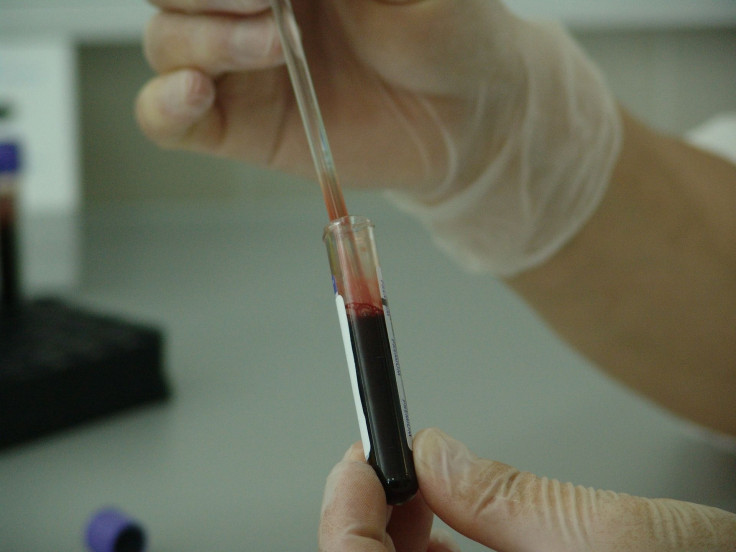4 Key Facts To Know About New Cancer Blood Test

Scientists have created a test that can detect cancer in a blood sample with an accuracy as high as 71 percent. The test uses DNA mutations as cancer biomarkers, which can prevent false positives and increase test sensitivity. The researchers, from Johns Hopkins Kimmel Cancer Center, believe it could one day revolutionize cancer diagnosis.
The test was able to accurately identify early-stage colorectal, breast, lung, and ovarian cancer in 138 patients with a 59 to 71 percent accuracy rate, Medical Xpress reported. Overall, the test detected 86 of 138 (62 percent) stage I and II cancers. The test works by reviewing DNA for 58 mutations that have already been associated with specific cancers. According to the study, this approach to cancer blood test detection is novel, and helps to avoid false positives by distinguishing between DNA shed from tumors and other altered DNA that can be mistaken for cancer biomarkers.
Here are four key concepts to help you understand what this potential blood test for cancer can, and can't do.
Early Detection Saves Lives
The main selling point of a blood test for cancer is early detection. Often, patients do not realize they have cancer until they begin to notice symptoms. Unfortunately, this often occurs when the cancer has spread throughout the body, making it far more difficult to treat. The ability to easily detect cancer faster could mean the difference between life and death for some patients.
"If we are able to detect cancer earlier, our chances of saving lives would be much higher," said lead researcher Dr. Victor Velculescu, Healthday reported. "The survival difference between late-stage and early-stage disease in these cancers accounts for over a million lives worldwide each year."
Can Also Rule Out Those Without Disease
The test can also rule out which patients don’t have cancer: False positives, or finding cancer in a patient who actually doesn’t have the disease, is a common and troublesome part of cancer detection. It’s also a waste of resources and can cause unnecessary stress and heartache for the patient and their family.
In this recent study, the new cancer blood test was purposely used on 44 volunteers without cancer. Results revealed no false positives. According to Velculescu, this equates to less than one false positive for more than 3.5 million letters of DNA sequenced, since each separate test requires assessment of 80,000 DNA base pairs associated with the 58-gene screening panel, Healthday reported.
Just A Proof Of Concept
These results show the test can work, but researchers still have many details to further consider, and it will likely be awhile before the test is available for public use at your yearly check-up.
"We still need to improve the sensitivity, but this is a step forward. It is a proof of concept," said Dr. Len Lichtenfeld, deputy chief medical officer for the American Cancer Society, Healthday reported. "It is not a test that's going to be available in a clinical laboratory anytime soon."
Not Universal For All Cancers
For now at least, the test can't detect 100 percent of cancers. For example, the test detected colon, breast, lung, and ovarian cancer, which are some of the most deadly cancers, but others types also exist. Still, the results are an encouraging step forward in early-diagnosis research.
Source: Phallen J, Sausen M, Adleff V, et al. Direct detection of early-stage cancers using circulating tumor DNA. Science Translational Medicine. 2027



























